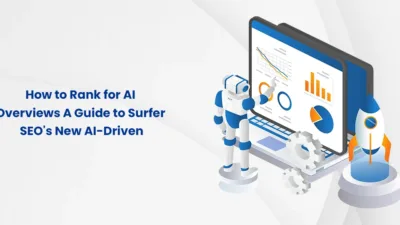A product manager’s (PM) job was never a sheer combination of technical proficiency, business acumen, and human judgment. Nevertheless, the game is accelerating with the introduction of artificial intelligence (AI) on a scale never imagined before. AI is assisting product managers in making intelligent decisions, automating processes, and bringing creativity to products, ranging from executing repetitive tasks out of robots to acquiring insightful information about consumers.
In today’s digital race and constantly increasing customer expectations, AI is soon going to be a bare necessity for a product manager in a runaway speed race. The article below by Kirill Yurovskiy is an explanation of how AI is revolutionizing product management, its boundaries, and the PM skills required to stay in the new age.
1. The New Challenges for Product Managers in the Age of AI
Product management of artificial intelligence is not a stroll in the park despite the potential. The PMs will have to handle complex AI-powered tools, decipher data-driven insights, and navigate the application of AI ethically. They will have to strike a balance between automation and human creativity because AI simply cannot match intuition and empathy when it comes to user-experience design.
One of the greatest challenges is keeping up with new AI technologies at a high speed. PMs must continually learn and be capable of using AI successfully, along with handling issues related to data privacy, bias, and transparency.
2. AI-Driven Market Research and Trend Analysis
AI is transforming market research since it allows PMs to process huge volumes of data quickly and accurately. Computer programs with natural language processing can mine social media, customer reviews, and surveys for information to determine trends and sentiment. Predictive analytics can even anticipate the demands of a market, and with that, PMs can decide on product features and positioning accordingly based on facts.
For example, AI can excel by monitoring competitors’ behavior and consumer behavior in an attempt to formulate market gaps. This helps PMs incorporate development in line with market trends and consumer needs to render product failure an impossibility.
3. AI Automation of Product Development
AI is also making product development easier by removing grunt work and processes. AI software, for instance, can code, test the software, and search for bugs so developers will not need to do low-level tasks in order to free them to do high-level tasks. Machine learning processes can even be capable of making supply chains cost- and efficiency-maximizing.
By automating routine work, PMs have more planning and thinking time. Product development is not just quicker but also the quality of products improves.
4. AI for Personalization and Customer Insights
Personalization is one of the strongest drivers of Customer Satisfaction, and AI is increasingly being utilized to enable even more personalized experiences. AI solutions dig into customers’ behavior, attitudes, and preferences and offer insights to make decisions. Recommendation engines like Amazon and Netflix are some of the solutions using AI in an effort to suggest or recommend content from a user’s own data.
These insights can be utilized by PMs to develop customized features, generate user stickiness, and build retention. With an understanding of the requirements of customers at a very granular level, PMs are able to develop products that resonate with the target audience.
5. How Machine Learning Contributes to Product Roadmaps
Machine learning (ML) is changing how product managers (PMs) go about designing and building product roadmaps. ML algorithms can use historical data, user feedback, and market trends to predict which features will deliver the most business value, allowing PMs to prioritize their projects over business requirements and user requests.
For example, ML can identify user behavior patterns when it comes to new features or upgrade needs. Having them ready in advance allows PMs to strategize ahead and upgrade in anticipation to be competitive with what they’re providing.
6. AI in Agile Workflows: Intelligent Project Management
Agile is the very pure essence of product management today, and AI is simply enhancing it. AI-powered project management tools can foresee project duration, allocate resources, and even suggest future bottleneck jams. They offer real-time remarks and recommendations and enable PMs to make fully informed decisions.
For example, AI can scan a team’s performance and reveal areas where change can be made to achieve extra productivity. With AI integration into agile project processes, PMs are provided with access to quicker and more efficient delivery of projects.
7. Reducing AI Decision Bias
Though the fact that AI does generate useful propositions is wonderful, in no way whatsoever is it ever fair. If biased input datasets provided to the AI algorithms to train them end up giving biased outputs, flawed decision-making is the final outcome. PMs must try as much as possible to ensure that they really don’t pick any such biases and eliminate them before bringing fairness and righteousness into the picture.
Solutions to AI biases include diversifying training data, frequent auditing of AI models, and diversifying decision-making teams. By resolving these, PMs can establish trust and enable AI ethical usage.
8. Most Important AI Skills for Future Product Managers
PMs must acquire new skills to survive the AI age. They are:
Data Literacy: Knowing how to read and interpret data.
AI Foundations: Machine learning, NLP, and other AI technology experience.
Ethical Sensitivity: Identifying and resolving biases and ethical issues with AI.
Collaboration: Effortless collaboration with data scientists and engineers.
Continuous learning and reskilling will be required to empower PMs to generate value and realize the full potential of AI.
9. Case Studies: Companies Using AI for Product Innovation
Smaller companies are leading product innovation with AI. For example:
Philips: Employs AI to provide personalized health advice and monitoring.
Spotify: Employs AI to create personalized playlists and recommend music.
Tesla: Employs AI to enable autonomous driving and customize the car.
Netflix: Employs AI to recommend content and stream in a cost-effective manner.
These are some potentialities that AI can perform as a way of fostering competitiveness and innovation. PMs can take lessons from such instances where they can take caution to identify opportunities in using AI for their respective business product.
10. How to Future-Proof Your Product Management Career
The wedding of artificial intelligence and product management is transforming the work of the PM, threatening as much as it promises at the same time. PMs must learn the necessary skills, be attuned to AI, and understand the trends for the future in order to secure their role for the next couple of years to come.
By using AI-powered decision-making, workflow automation, and personalization, PMs can innovate and develop products that the customer will adore. AI product management is the future, and lady luck will smile on those who invest in it in the future world.
Final Words
AI is not a tool — AI is a product management game-changer. Knowing its potential and the reason for its limitation, PMs stand their best chance to release new heights of creativity and work capacity. It can be done with each passing learned day step by step, ethically based and knowingly in the sense of having users in mind. As the pace of AI innovations quickens with every moment, it will transform the work of product managers, with challenging prospects for the individuals who will shape the future.





